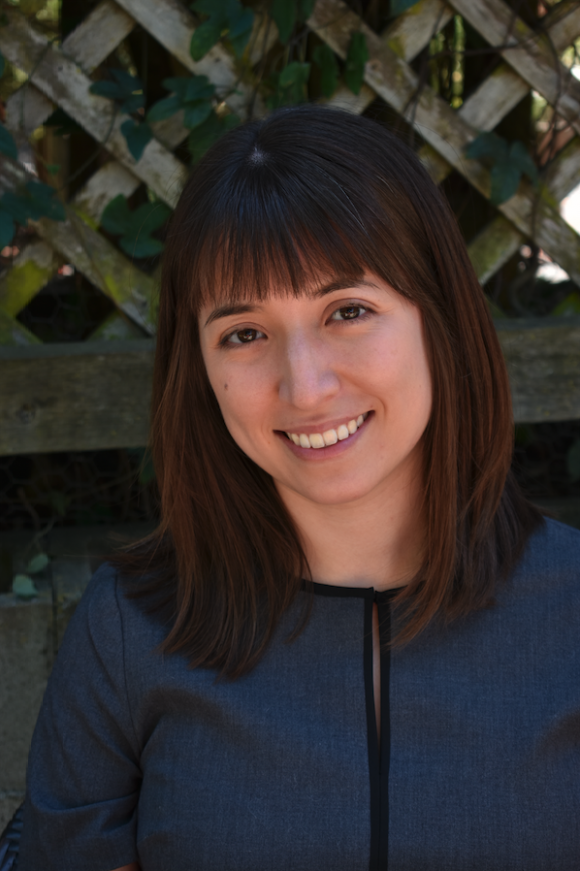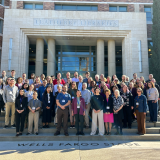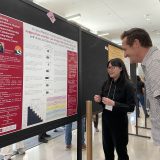Welcome New Schmid Faculty – Richelle Tanner
Announced on August 16, 2021
Join us in welcoming Richelle Tanner, Ph.D. to Schmid College as an assistant professor of environmental science. We asked Dr. Tanner a few questions to get to know her and her research!

Q & A with Dr. Tanner
What is your current area of research and how did you become passionate about this area?
Fitting my research into just one area has always felt impossible, so I like to say I am interested in the effects of climate change on our communities. This includes both human and ecological communities, specifically where they intersect in coastal areas like rocky shorelines and estuaries. This means that I study things like sea slug physiology and eelgrass ecology, as well as the role of environmental literacy in self-advocacy for minoritized communities disproportionately affected by climate change. You can read more about my research at www.seacrlab.com. I grew up in Seattle, spending my summers in Hawaii with family as well, and developed a great appreciation for the ocean and our environment. I’ve always wanted to be a marine biologist, but I waited until graduate school to specialize in that field. I focused my undergraduate studies more broadly on environmental science and policy, where I began to integrate social responsibility and justice into my research ideas. It has taken until this year, ten years after I started as a freshman, to fully develop a climate change research program focused equally on the scientific discovery process our responsibility to use science for the betterment of our communities. I’m very excited to have the opportunity to join both Schmid and Wilkinson Colleges to further my research agenda alongside Chapman students.
What’s your favorite thing about being a professor?
This is my first time being a professor, I couldn’t say! But I am most excited about the opportunity to develop new research ideas alongside students. I’ve always found student researchers to have the creativity and innovation we lose sight of when the grind of the research machine bogs us down. When students come into research excited about brand new ideas, it brings me a kind of joy and motivation that no grant or class has ever done for me. Watching discovery happen through someone else’s perspective is a truly magical thing.
Schmid College believes that the best science happens when diverse individuals are supported, included and empowered to share their voices as a part of scientific discovery. Please share with us what diversity, equity, and inclusion mean to you and why they’re important.
Diversity, equity, inclusion, and justice are an integral part of both my primary research with local communities and the culture I strive to foster in my classroom and lab. I regularly contribute scientific literature about our shortcomings as a field in this area (see here, here, and here for most recent publications), but I also commit to continuing my own learning to best support my students and staff. As a child of a BIPOC immigrant that has been able to pass as “belonging” to the scientific academy, I take every opportunity to leverage my privilege for my colleagues and students still harmed by our institutional structures. In the broader community, I use my research in environmental literacy to empower local residents for self-advocacy: it is not my role to speak for anyone. If a student is interested in getting involved in this research and shares my lab’s cultural values, I encourage them to reach out to rtanner@chapman.edu.
Share a fun fact about yourself.
I have an undergraduate degree from a music conservatory in jazz performance. If you go to a USC Thornton Jazz Orchestra concert, you might still hear some of my compositions being played!
Is there anything else you would like to share with our Schmid College community?
I have a new course this fall in science communication focused on the social science research behind why and how certain types of communication are more effective than others. Titled “ENV329: Environmental Advocacy Through Story”, I encourage any scientist looking to connect with diverse stakeholders (public, government, non-profits, etc.) to learn with us! Some of the research-based techniques we will discuss are even relevant to the current COVID-19 crisis.

